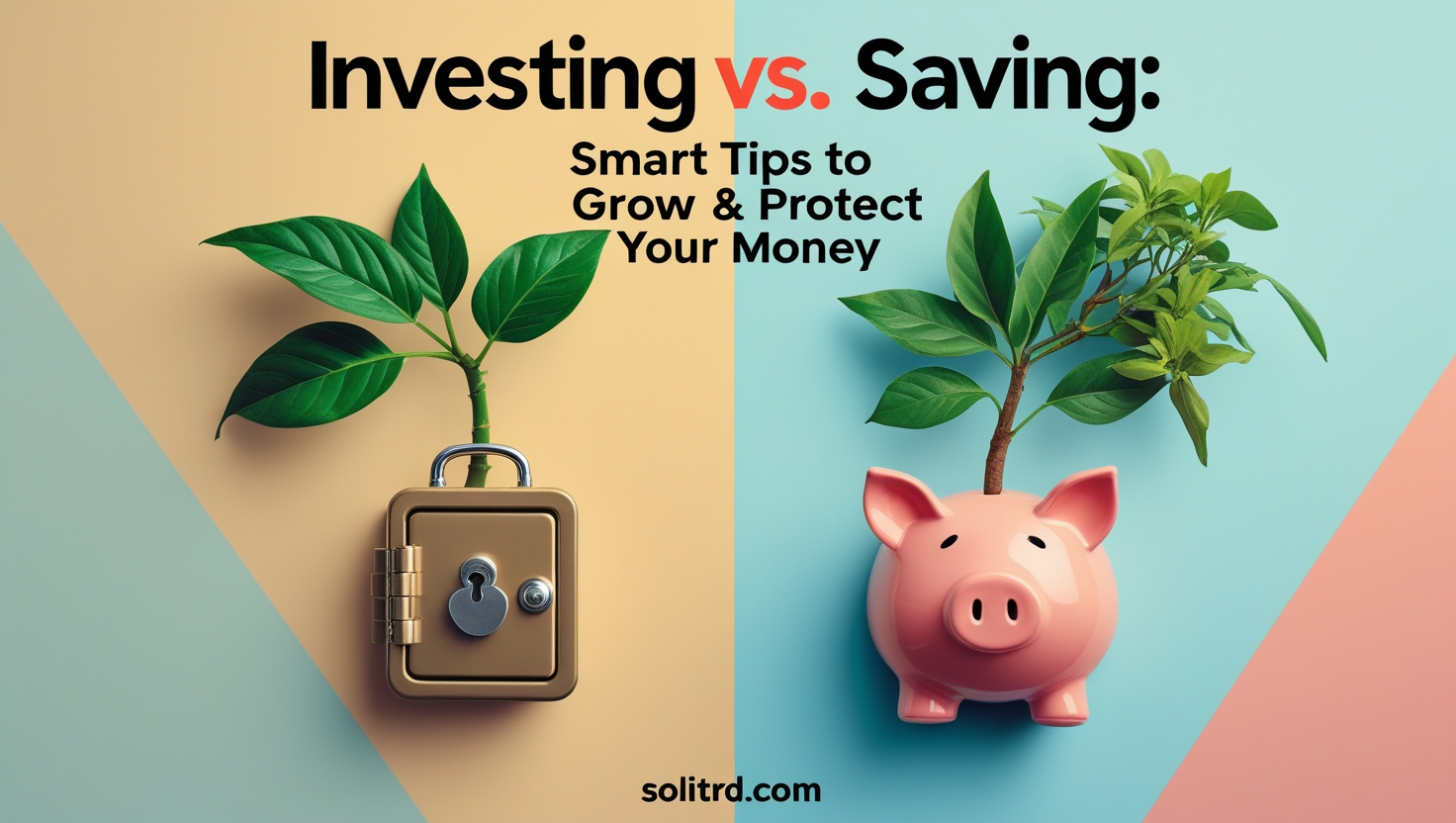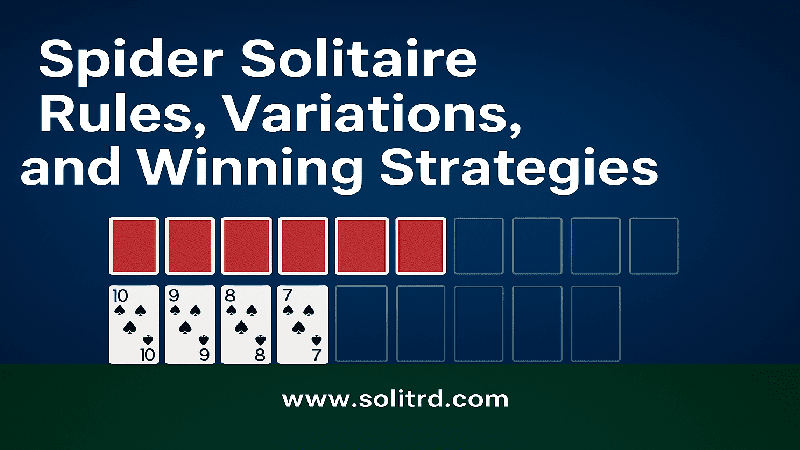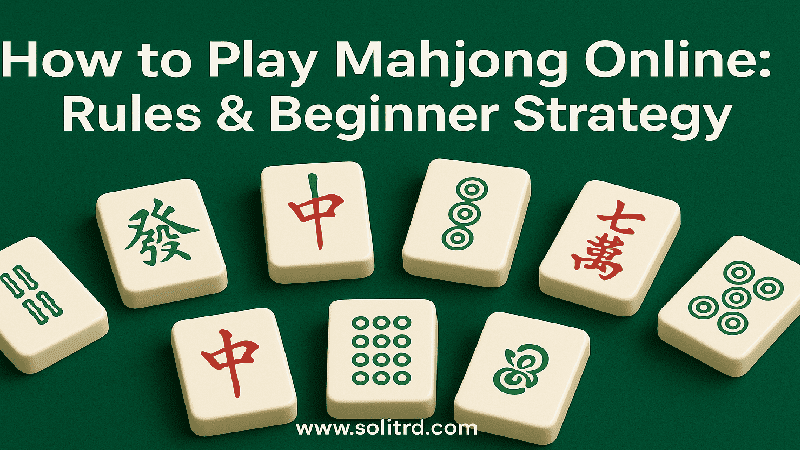Investing vs. Saving: Smart Tips to Grow & Protect Your Money

📌 Introduction
Managing money can be one of the biggest struggles for anyone looking to secure financial independence. Should you save your money in a savings account, or let your money work for you through investing? Before you can start thinking about investing, understanding investing vs saving is the first step toward securing your future and growing your money. In this guide, we will explore the differences between saving and investing, the benefits of each and how to choose the one for you, based on your goals.
💰 What does Saving Mean?
Saving means to reserve a part of your income for future needs or for emergencies. When saving, you typically put your money into savings accounts, a fixed deposit account, or a stash of cash that you have put in an “emergency fund”.
📅 When should you save?
- When building an emergency fund (3–6 months of expenses).
- For short term goals (buying a new gadget, going on a holiday, getting married).
- When you need fast, risk-free access to your money.
💡 Saving Tips:
- Automate your monthly savings.
- Separate your accounts into savings and spending accounts.
- check to see if a high-yield savings account is realistic.
📈 What is Investing?
Investing is putting your money to work by purchasing assets like stocks, bonds, mutual funds, or real estate so you can build wealth over time. Investing is different from saving because it includes some risk, but investors have the ability to achieve a greater return.
⏳ When should invest?
- Long-term goals (retirement, kids’ education, purchasing a house).
- After you have established a steady emergency fund.
- If you are willing to experience volatility for a better return.
💡 How to Invest Money (for novices):
- Take small steps with low-cost index funds.
- Diversify – don’t put all your eggs in one basket.
- Be patient; investing is a marathon and not a sprint.
🔍 Investing vs. Saving: Important Differences
The following is a quick side-by-side comparison of investing vs saving to help you decide where to invest your money:
| Feature | Saving 💵 | Investing 📈 |
|---|---|---|
| Risk | Very low | Varies from moderate to high |
| Returns | Low, fixed | Potentially high, variable |
| Liquidity | Highly liquid | May take time to sell |
| Time Horizon | Short-term | Long-term (5+ years) |
| Purpose | Safety, emergencies | Wealth building, beating inflation |
| Examples | Savings accounts, CDs | Stocks, mutual funds, real estate |
✅ When to Save vs Invest
There are many specifics depending on your situation, but here’s a guideline to help make the distinction a little easier:
1️⃣ Save first for emergencies
Always maintain your emergency fund before investing. While you may have lost your job unexpectedly, you certainly don’t want to risk losing money through bad investments the week before your daughter’s wedding.
2️⃣ Save for short-term spending plans
If you plan to spend the money in 1–3 years, it is best to save than invest. Markets can go up as well as down and you absolutely do not want to lose money before you need to spend it.
3️⃣ Invest for the long-term
If your goal is 5, 10, 15 years or more away, consider investing because you will earn a better rate of return than simply saving. Historically speaking, over a long period of time investments have outperformed just saving (after inflation).
4️⃣ Do both!
Most smart plans for money have both saving and investing. For example:
- 50% in savings for emergencies and spending money, and
- 50% in the market for wealth and retirement.
🗂️ FAQs
Q1: If I’m in debt should I save/invest my money?
👉 For me, the answer is to pay off high-interest debt (credit cards) first, and then build your emergency savings. After that, you can invest for the long-term.
Q2: How much should I have in my savings before I invest?
👉 A good rule of thumb is to have 3–6 months of living expenses saved before investing excess cash.
Q3: Is it risky to invest if I’m a beginner?
👉 All investing has some sort of risk, but risk can be avoided by starting with diversifying options like index funds or ETFs, and by taking a longer-term investing stance instead of trying to time the market.
🔑 Conclusion
If you understand the difference between investing vs saving, you are a lot closer to attaining financial freedom. You must save first to create security, and then you can invest to build wealth and combat inflation. Whether you’re new to investing or a seasoned investor looking to step it up, do something today — you will thank your future self! 💪💸
👉 Ready to take control of your money? Get started by creating SMART goals, building your emergency fund, and retail investing in beginner-friendly firms.
Solitaire trains your mind by enhancing attention, reasoning, and decision-making skills. It provides a quiet escape that calms nerves and eases tension. This solo game builds patience, careful thought, and self-reliance. Simple yet captivating, solitaire offers a productive mental break, keeping the brain active while delivering peaceful relaxation.






